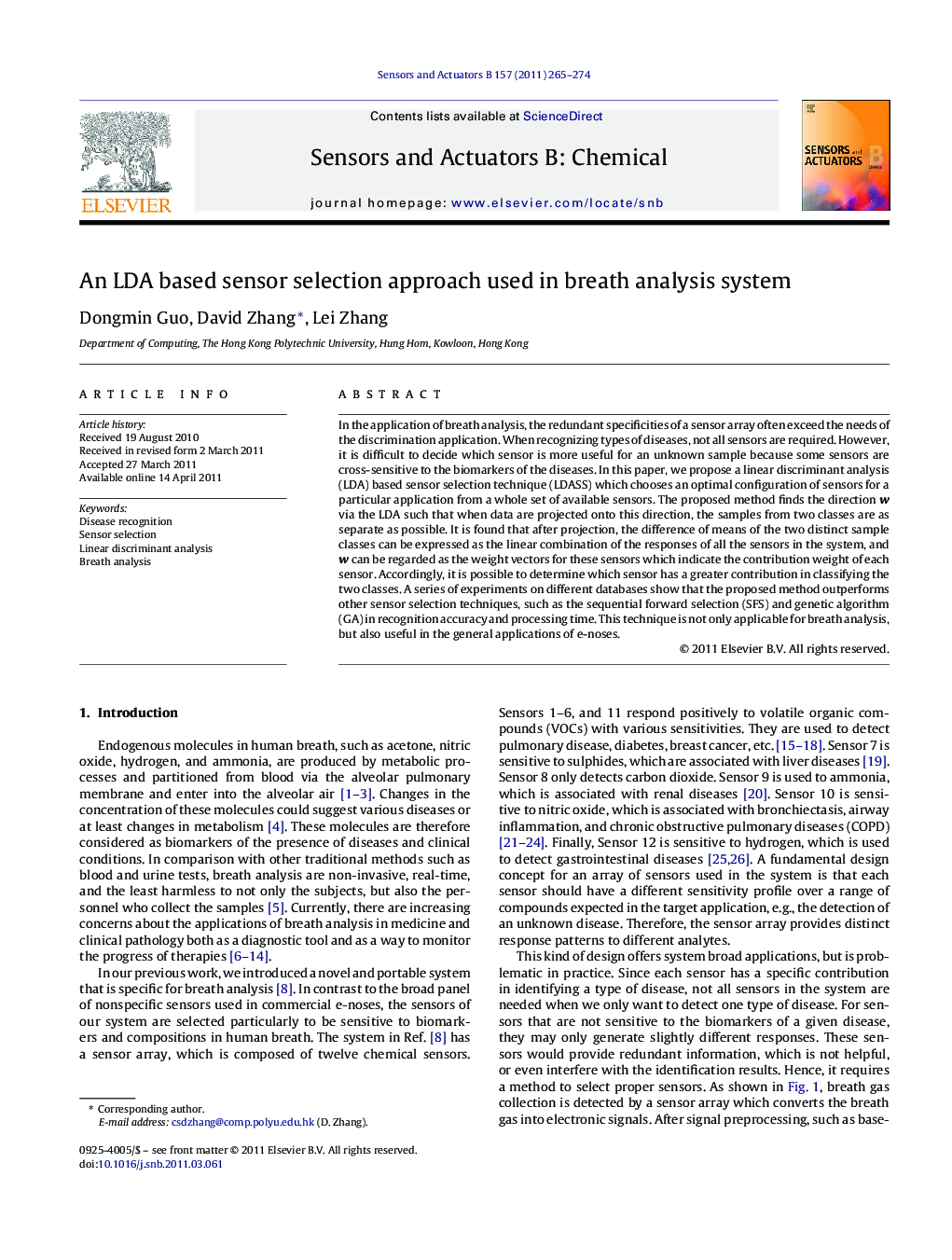| کد مقاله | کد نشریه | سال انتشار | مقاله انگلیسی | نسخه تمام متن |
|---|---|---|---|---|
| 745786 | 894430 | 2011 | 10 صفحه PDF | دانلود رایگان |

In the application of breath analysis, the redundant specificities of a sensor array often exceed the needs of the discrimination application. When recognizing types of diseases, not all sensors are required. However, it is difficult to decide which sensor is more useful for an unknown sample because some sensors are cross-sensitive to the biomarkers of the diseases. In this paper, we propose a linear discriminant analysis (LDA) based sensor selection technique (LDASS) which chooses an optimal configuration of sensors for a particular application from a whole set of available sensors. The proposed method finds the direction w via the LDA such that when data are projected onto this direction, the samples from two classes are as separate as possible. It is found that after projection, the difference of means of the two distinct sample classes can be expressed as the linear combination of the responses of all the sensors in the system, and w can be regarded as the weight vectors for these sensors which indicate the contribution weight of each sensor. Accordingly, it is possible to determine which sensor has a greater contribution in classifying the two classes. A series of experiments on different databases show that the proposed method outperforms other sensor selection techniques, such as the sequential forward selection (SFS) and genetic algorithm (GA) in recognition accuracy and processing time. This technique is not only applicable for breath analysis, but also useful in the general applications of e-noses.
Journal: Sensors and Actuators B: Chemical - Volume 157, Issue 1, 20 September 2011, Pages 265–274